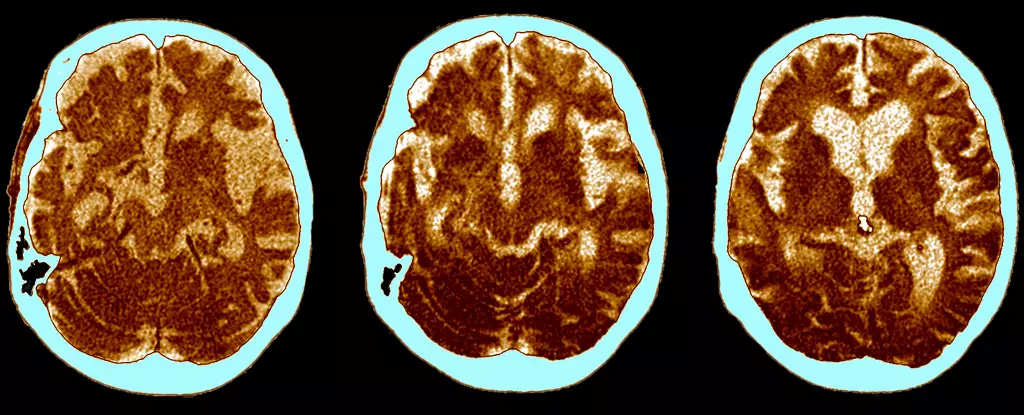Alzheimer’s disease is a devastating condition that affects millions of people worldwide. However, there is an intriguing phenomenon where some individuals have the pathological changes associated with Alzheimer’s in their brains, yet do not exhibit any symptoms of the disease. A recent study conducted by researchers from the Netherlands Institute for Neuroscience delved into this mystery, examining brain tissue samples from the Netherlands Brain Bank. Out of over 5,000 samples, only 12 individuals were found to have been cognitively healthy prior to their death but showed clear signs of Alzheimer’s pathology. This rarity provided researchers with a unique opportunity to investigate what distinguishes these resilient brains from those that succumb to the disease.
While the reasons behind this resilience remain elusive, it is believed that both genetic factors and lifestyle choices play a significant role. Studies have shown that the expression of hundreds of genes in the brains of cognitively healthy individuals with Alzheimer’s differs from those with typical Alzheimer’s symptoms and from healthy controls. One key difference was observed in the astrocyte cells, responsible for clearing waste from the brain. Resilient brains exhibited better clearance of toxic proteins linked to Alzheimer’s development, suggesting a more efficient waste removal system. Additionally, these brains displayed enhanced energy production within their cells, indicating a potential mechanism for protection against neurodegeneration.
Identifying the molecular basis of brain resilience could pave the way for novel therapeutic approaches in Alzheimer’s treatment. By understanding the cellular processes that safeguard resilient brains from disease progression, researchers hope to develop medications that activate these protective mechanisms in patients with Alzheimer’s. With the global prevalence of Alzheimer’s on the rise, finding ways to prevent, slow down, or reverse the damage caused by the disease is becoming increasingly urgent. Each study that sheds light on the underlying mechanisms of Alzheimer’s brings us closer to unveiling the secrets of this complex condition.
Challenges and Future Directions
Despite the progress made in unraveling the mystery of resilient brains, significant challenges lie ahead. Determining the exact triggers that initiate the disease process remains elusive, as human data alone may not provide all the answers. Experimental models and further research are needed to validate the findings and explore potential therapeutic interventions. Understanding why certain individuals are more resilient to Alzheimer’s could open doors to developing targeted drugs that enhance brain protection mechanisms. The journey towards effective treatments for Alzheimer’s is long and complex, but studies like this offer hope for a future where we can combat this devastating disease more effectively.


Leave a Reply